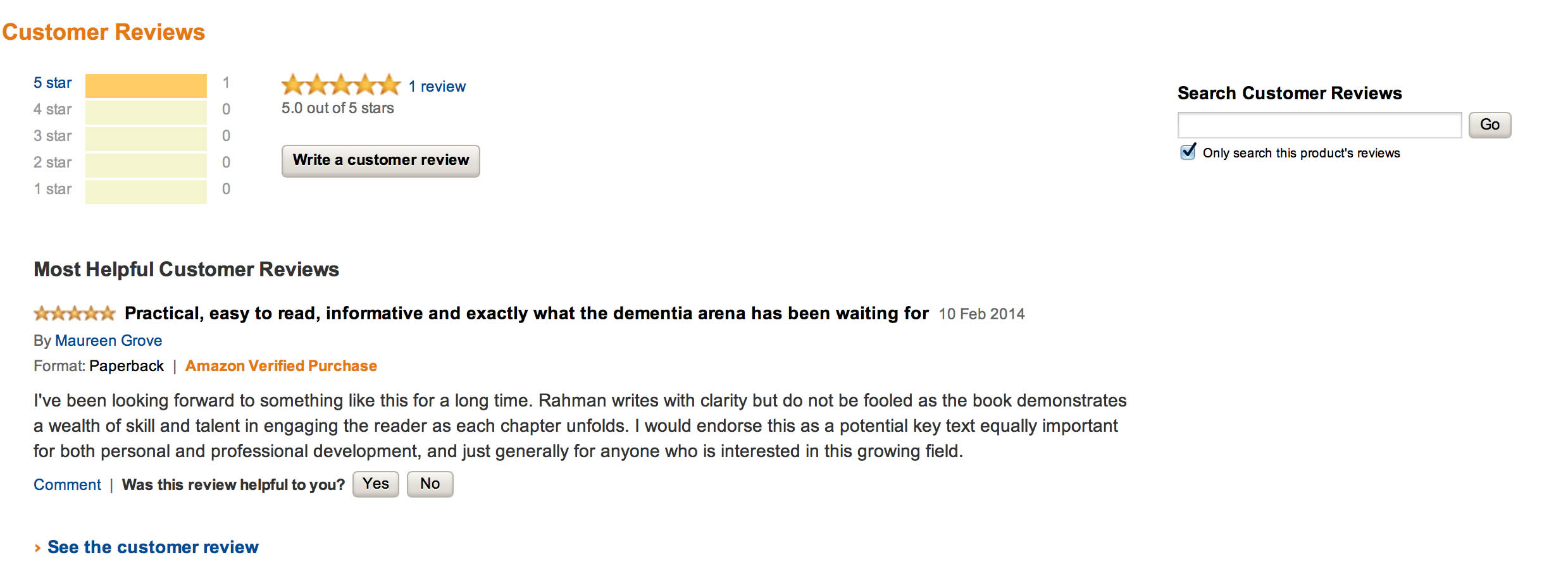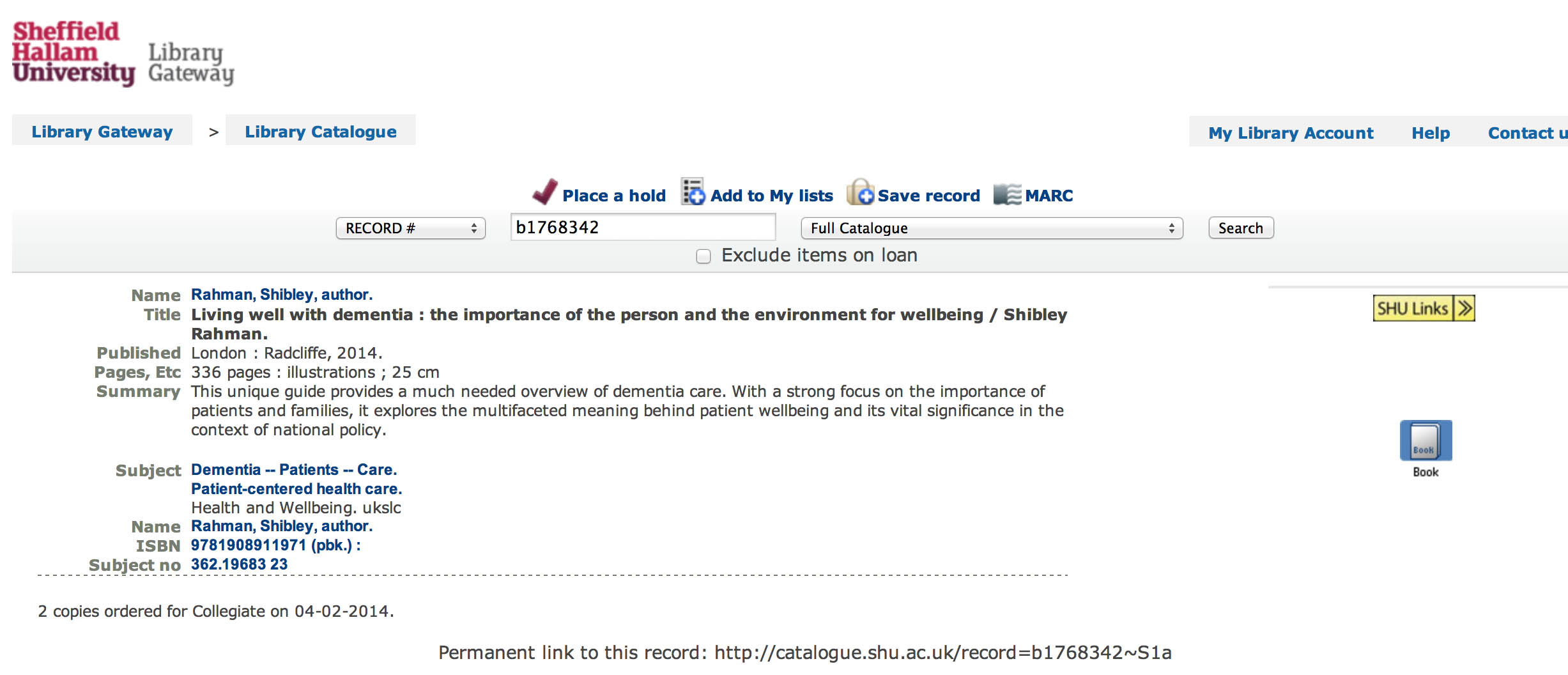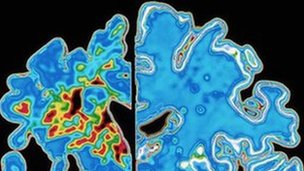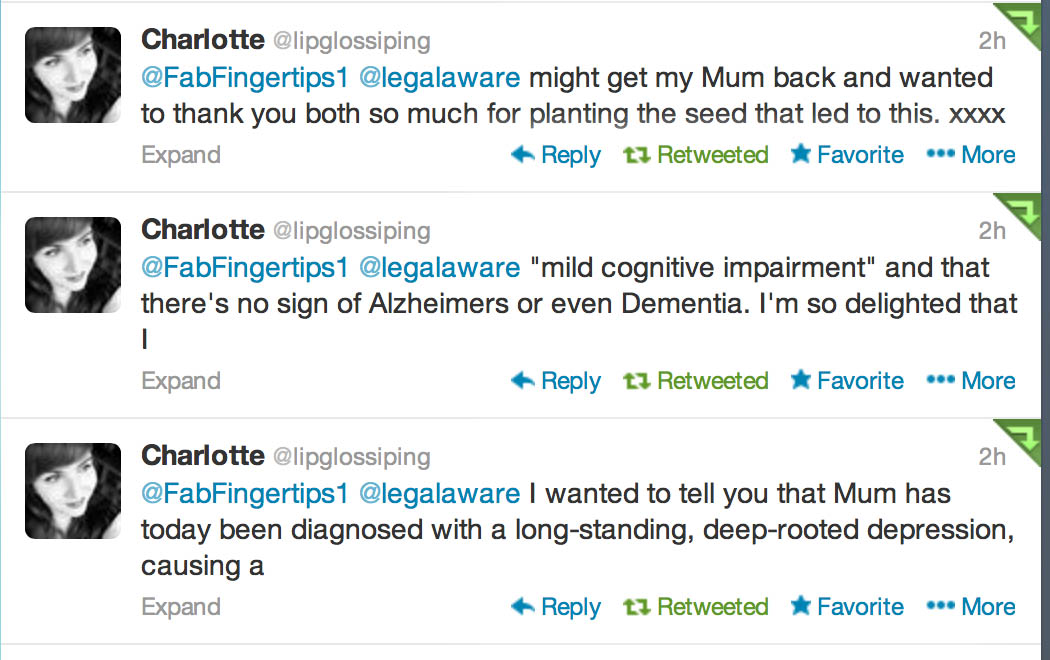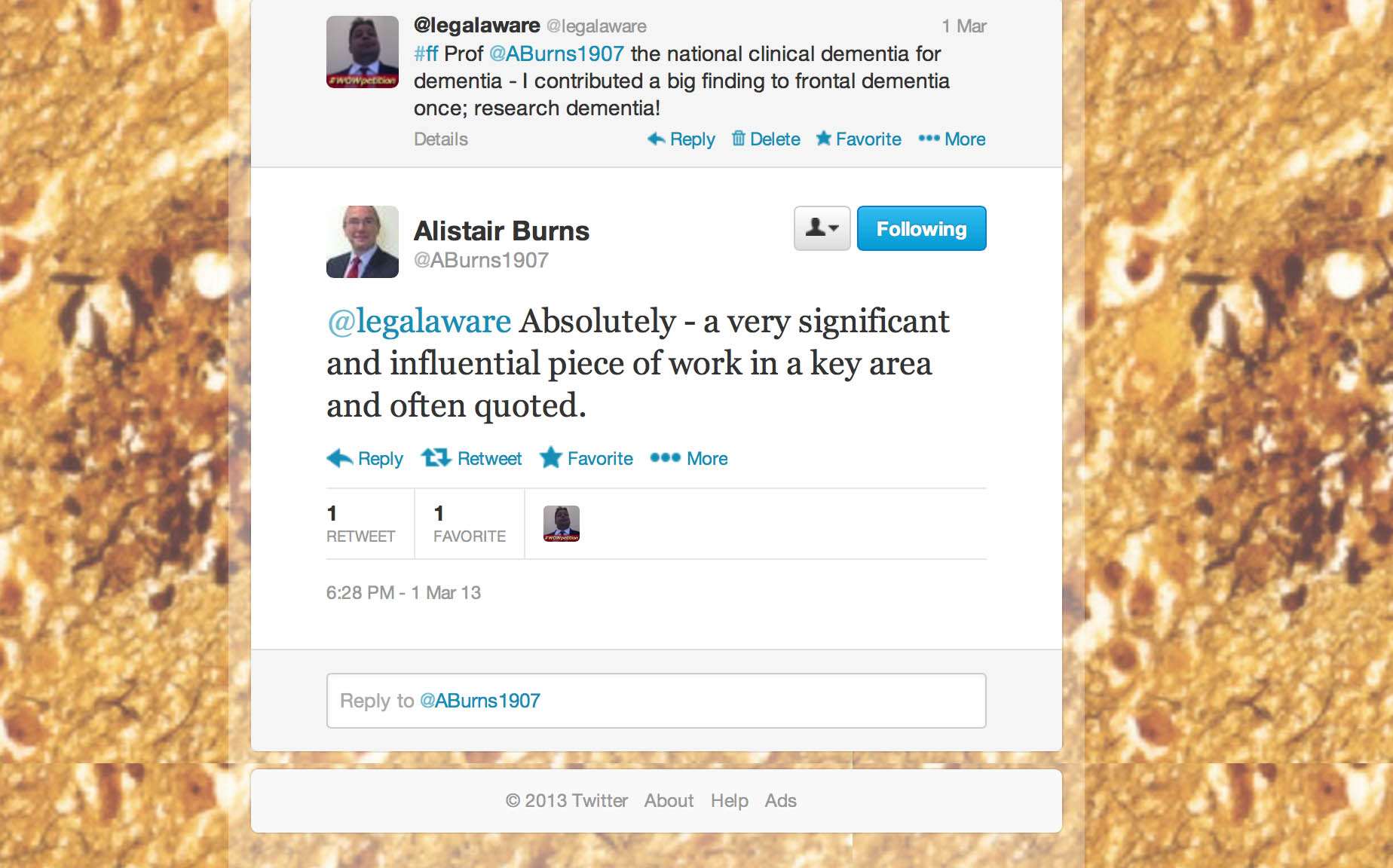Sally who’s done one of my Forewords has made this book very special for me:
Tonight I am totally honoured to be invited to write a foreword to the book by @legalaware on dementia. What an end to a busy day. Humbled
— Sally-Ann (@nursemaiden) August 3, 2013
I received this very encouraging book review today.
And my book appeared in its first library (Sheffield Hallam University) – thanks to @reddite
And I felt a bit of #TwitterLurve:
This is the book @legalaware has written with my photo on the front cover. I’m so proud pic.twitter.com/4koQ12nnq5
— Charmaine Hardy (@charbhardy) January 29, 2014
@legalaware Two thirds way through your book-saying nothing until I’m finished-so far……excellent……I.ve just contradicted myself :))
— Gerry (@archangelolill) February 10, 2014
VERY honoured to publish ‘in the shoes’ of my enigmatic & lovely friend Shibley next Saturday. The day of his book launch  📗📘📙@legalaware
📗📘📙@legalaware
— Gill Phillips (@WhoseShoes) February 9, 2014
@legalaware The perfect evening in: reading your excellent book Living Well with Dementia. Looking forward to launch!
— Zoe Harris (@Care_Charts_UK) February 8, 2014
“@legalaware: very proud on 1st day of release my book is #3 in the UK for m. health services http://t.co/GlzIdJH3zO”<WOW Shibs incredible
— Val Hudson (@val_hudson) January 27, 2014
@WhoseShoes @legalaware I’m sitting with my copy right beside me. Boss wants me to order more……:) 
 Fab book, practical and readable
Fab book, practical and readable
— Maureen Shiells (@MMShiells) February 8, 2014
NEW book out entitled “Living Well with Dementia” re. a subject that touches many of us. By top scholar @legalaware http://t.co/aF7xRSAXFN
— Chrissie Lightfoot (@entrepreneurlaw) January 24, 2014
An extract from the new #dementia book from @legalaware something for for all here! #demphd #alzheimers http://t.co/j1a0xSUwTy
— Adam Smith (@BetterResearch) February 8, 2014
Shibley dosen’t need a #FF, he’s got 11.5k of them, but the book has been so well received @legalaware @dementia_2014. Fantastic :-))
— Lucy Jane marsters (@lucyjmarsters) February 7, 2014
#dementia A new book out on the Importance of the Person and Environment – Living Well with dementia http://t.co/b6Z4sX0pE4 @legalaware
— Guild Care (@GuildCare) February 2, 2014
Defo going to buy this book by my virtual friend @legalaware. Advise anyone else interested in dementia to do so: http://t.co/AAQebaPUEK
— Pippa Kelly (@piponthecommons) December 28, 2013
Congratulations to @legalaware with a new book published. Please RT to all with an interest in Dementia care http://t.co/j92BDwZoLV
— Training for Carers (@trainingcarers) February 1, 2014
The ‘glowing example’ of “Healthy Living Clubs” is mentioned in @legalaware‘s book “Living Well With Demetnia” http://t.co/wmSY379yOz!
— Healthy Living Club (@HLCLC) October 26, 2013
” Living well with Dementia” – thank you for the kind acknowledgement. In your book out this week http://t.co/l7uQuVXCqh @legalaware
— youcanmakedifference (@tommyNtour) February 1, 2014
Delighted to see @legalaware & his new book Living Well with Dementia cited in TelecareLin #Dementia supplement http://t.co/KdjtvIeZOT
— Shirley Ayres (@shirleyayres) January 30, 2014
